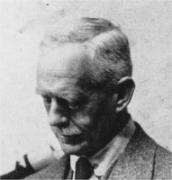|
|
||||||||||||||||||||||||
 |
Featured person
Recently added |
William Mawhinney VC (1837 - 1866): |
||||||||||||||||||||||
William Mawhinney (*alternative spellings of his name are McWheeney or McWhiney) was only the second soldier from Ulster to win the Victoria Cross, the highest award for bravery in the British armed forces.
He was born in Bangor and served with the 44th (East Sussex) Regiment which deployed in the Crimea in September, seeing action at the major engagements of Alma, Inkerman and others in the campaign by British, French and Turkish forces to capture Sevastopol, capital of the Crimea and a vital Russian military, especially naval, base.
On 20 October, 1854, the 44th was involved in an action against Russian positions (known as “rifle pits” – later wars and posterity would call similar though more sophisticated positions “trenches”) around Woronzoff Road. Russian defence was to much and the British retreated under fire. One soldier, Private John Keane, fell wounded and was stranded on open ground and unable to move on his own. Sergeant Mawhinney, despite the heavy Russian fire, carried Keane to safety on his shoulders. On 5 December he performed a similar act, this time rescuing a Corporal Courtney, though the enemy fire was so heavy he had to scrape a shallow hole in the ground for himself and his wounded comrade; they were not able to risk breaking their impromptu cover until nightfall. The following year, in June, he volunteered to man an advanced listening post, a highly dangerous operation. Despite his exposure to these and other dangers, Mawhinney was never absent from duty for the entire war.
The Victoria Cross was instituted in 1856, as a direct result of the Crimean War which, though a victory for the British French and Turkish forces, nevertheless cam at the cost of many casualties in battle, and as has become notorious, large numbers of military personnel who succumbed to disease and extremely inadequate medical treatment of the wounded. Before the War, there were rather few decorations for bravery, which was normally acknowledged by admission to chivalrous orders for senior officers, while junior officers and other ranks would receive promotions or financial rewards. In 1854, two new medals were instituted, but for other ranks only, and service-specific. What was notable about the new Victoria Cross was that it could be awarded to any rank in either service (army or navy). In order to recognise the considerable acts of gallantry during the Crimean War, which ended in March 1856, instituted, the VC was made retrospective to the beginning of the War. Queen Victoria signed the requisite Royal Warrant on 29 January, and the public announcement was duly published in the London Gazette dated 5 February, 1856.
Mawhinney was among those first VC winners to be gazetted, on 24 February 1857, and he attended the first VC investiture, in Hyde Park, on 26 June 1857. Queen Victoria herself conferred the medals to sixty-two recipients. Mawhinney settled in Dover; there is a memorial to him there, in St James’ Cemetery.
| Born: | 1837 |
| Died: | 1866 |
| Richard Froggatt |
| Bibliography: R Doherty & D Truesdale: Irish Winners of the Victoria Cross (Dublin 2000); Farset Youth and Community Development Unit: Ireland's V.C.s: a comprehensive list of Irishmen who were awarded the Victoria Cross |


Home | Our Policies | Plaques | Browse | Search | Sponsors | Links | Help | Contact
Privacy & Disclaimer | Cookie Policy | Site Map | Website Design By K-Point
© 2024 Ulster History Circle









